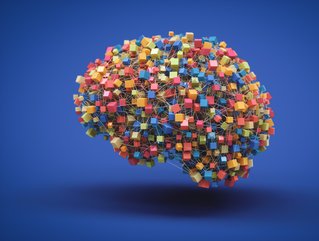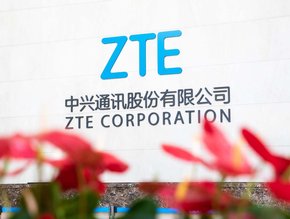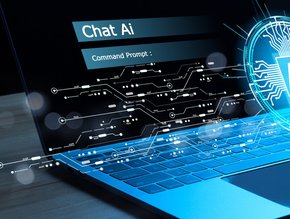
Everyone’s talking about generative AI, and that conversation is only growing louder.
Whether generating text responses with ChatGPT or Bard, or more creative mediums like conceptual art, the prospect remains that AI could change the world as we know it forever.
Natalie Cramp, CEO at data consultancy Profusion says: “It goes without saying that the impact of generative AI will dominate conversations for the foreseeable future. However, when it comes to determining all the ethical and practical implications of AI - there's no such thing as too much talk.”
The future of GenAI as adoption grows
Kit Cox, Founder of SaaS orchestration platform Enate, said the speed of change in AI is the largest in a generation.
“It’s unprecedented. It's the biggest technological change in my lifetime. We’ve recognised an opportunity to integrate large language models within the Enate platform which enables businesses to use AI in operations, in a way that’s never been done before.”
Powered by GPT-4, EnateAI can automatically perform sentiment analysis and email triage, removing the need for complex machine learning modelling and expensive third party vendor costs. It delivers 90% accuracy compared to traditional vendors, which usually only reach 70% accuracy.
“Generative AI is a transformational force for innovation in organisations, accelerating industry specific use cases to create value, and it’s no surprise that it’s already at the top of the agenda of virtually every large organisation,” Franck Greverie, Chief Portfolio Officer and Group Executive Board Member at Capgemini continues.
“While generative AI can enable numerous benefits for businesses and employees alike, adopting a human-centric approach while scaling the technology and implementing necessary guidelines will be key to fostering trust in the workplace. As businesses accelerate their generative AI journeys, they must prioritise implementing it sustainably across the organisation.”
And with all elements of existence teed up to be forever changed as the AI revolution takes hold, IoT is no different.
With IoT being a driving force behind how billions of connected devices worldwide communicate, AI has the ability to supercharge the way the network incorporates new insights and predictions thanks to its deep learning capabilities.
Making IoT smarter
Although AI has the capacity to benefit IoT, Cox shares that the development of AI itself should be honoured and respected when rolled out to benefit other entities.
“AI represents a collective resource that has been shaped by the contributions of
everyone who has used the internet over the past 25 years,” he says. “It’s imperative that AI is decentralised to ensure its benefits extend to society as a whole, rather than exclusively benefiting a select group of individuals who have harnessed its potential and developed AI products.”
For example, processes that make networks more efficient - either through intelligence or self management - can evolve and be heightened thanks to GenAI, or GenAI can be taught to spot anomalies often associated with cyber attacks to ensure the security of data.
“We need to establish legislation that acknowledges AI as a natural resource that owes its existence to the collective data contributions of every individual who has accessed the internet,” Cox adds, noting advantages from generative models should extend to every person who has had internet access rather than just in the hands of the technologically savvy.
Business considerations before implementing AI and automation
“In order to train and utilise AI models effectively, data sharing is a necessary
Component,” Cox acknowledges. “It’s crucial to establish clear guidelines that stipulate which data can and cannot be shared with both public and private AI models. It’s
important to determine the organisation’s stance on using its data to train other
models. To ensure AI safety, it may even be advisable to designate a responsible
individual within your business.”
Referring here to workplaces in general, this can also be applied to GenAI’s impact on IoT, as Cox says the need for specialists in this domain, like a Chief AI Officer, is becoming increasingly evident as organisations are becoming progressively committed to leveraging AI on a significant scale.”
An uncertain AI future?
Cramp adds: "We need people to explore how AI will impact our culture. It's not hyperbole to say that AI has the capacity to change nearly every aspect of our lives. To fully get to grips with all the potential implications we need to get as many perspectives as possible.
“We also need to do more to educate people on what AI actually involves. There is a lot of hype and frankly misinformation out there about the existing and imminent capabilities of AI. This creates both over-inflated expectations and a lot of unnecessary fear.”
Cramp explains that GenAI hitting headlines inhibits our ability to tackle the here and now of determining how we want AI to develop and what limitations we need to impose and how we should enforce them.
“Put simply, if people and politicians don't understand the basics of AI, it's very difficult for them to make ethical judgments on how to use it.
"We only need to look at how only privacy issues were handled when social media exploded to see why action needs to be taken now. For AI to continue to develop we need to avoid going down this route and the data industry has a critical role in ensuring this doesn't happen.”






